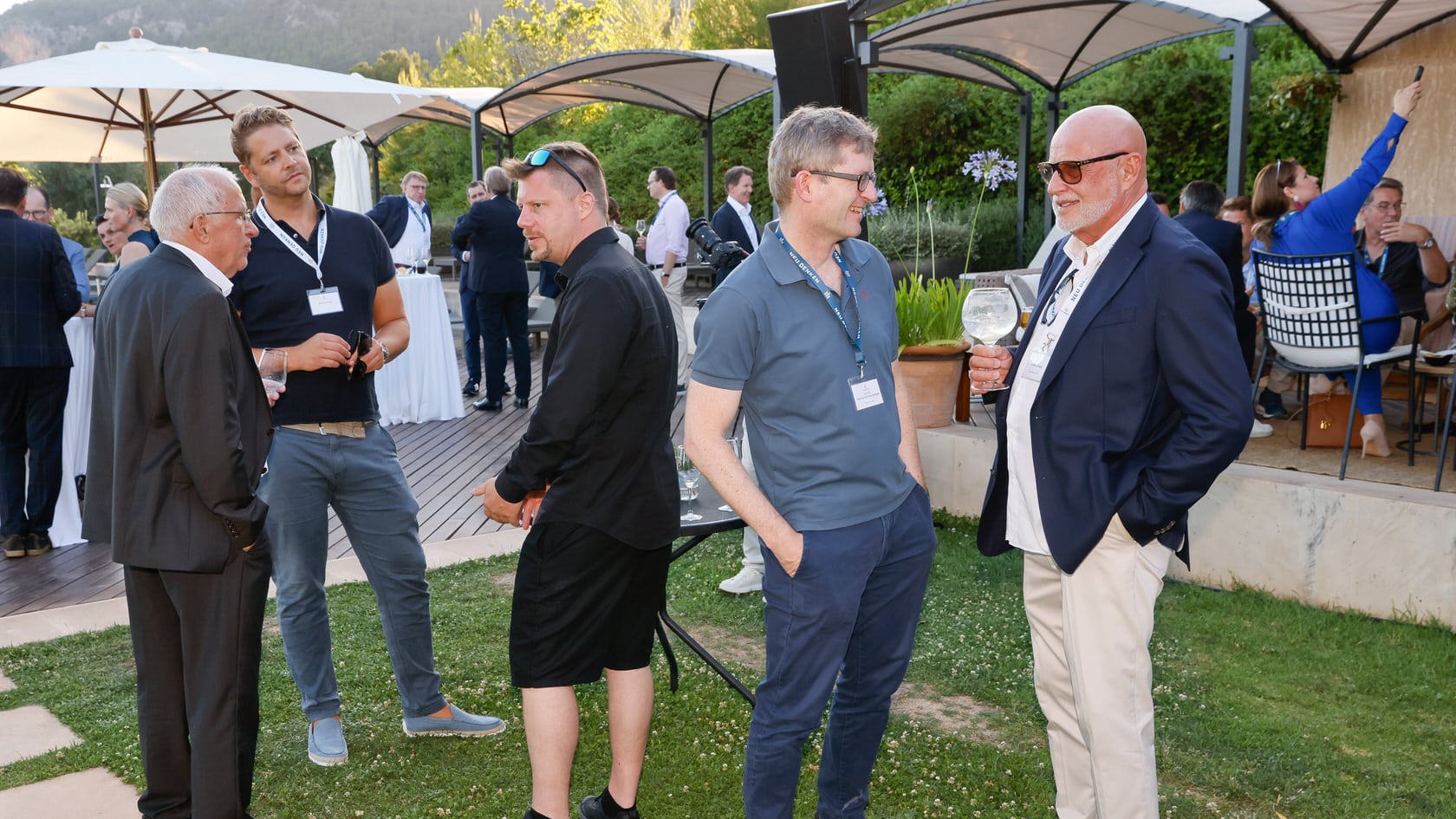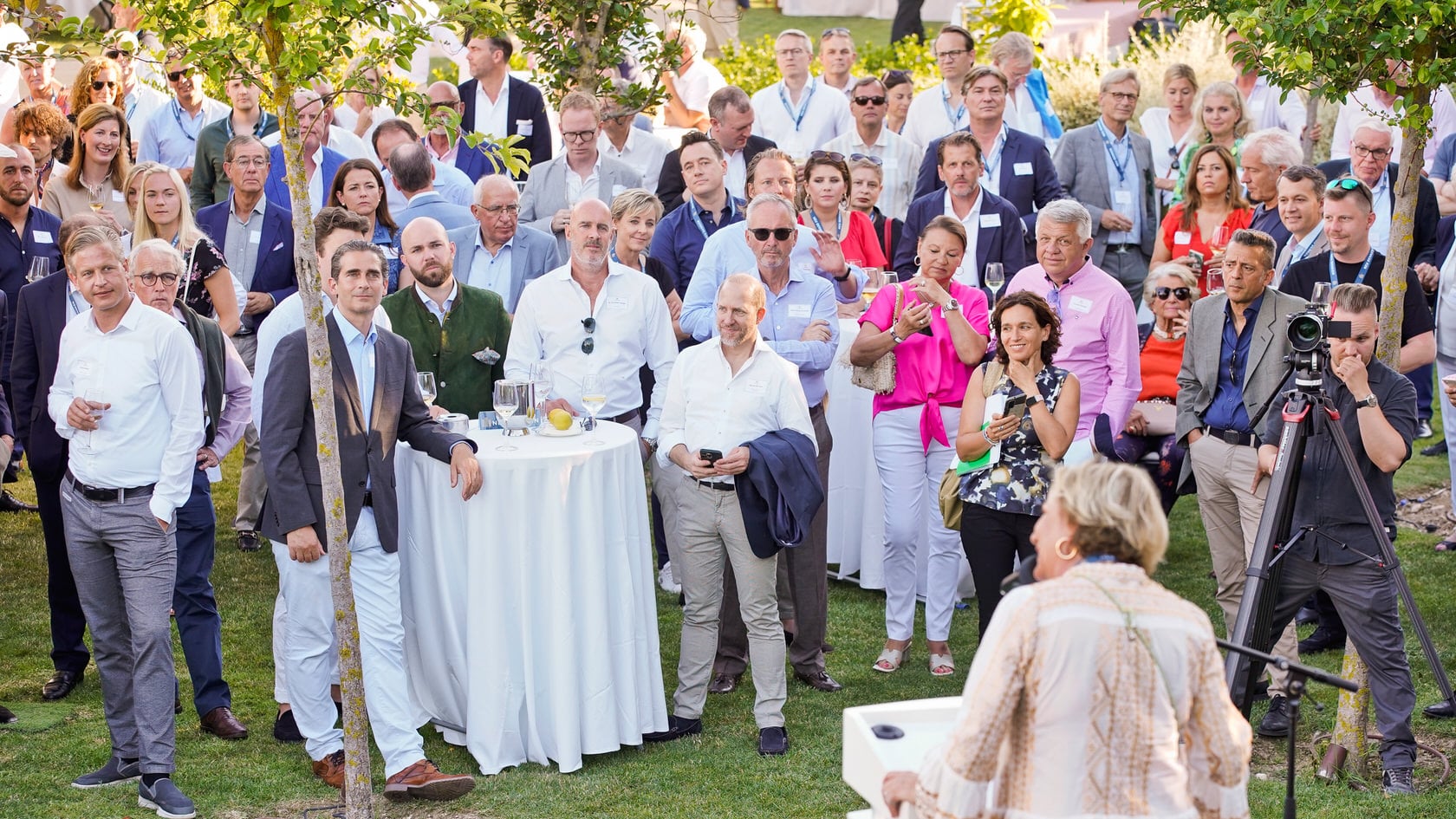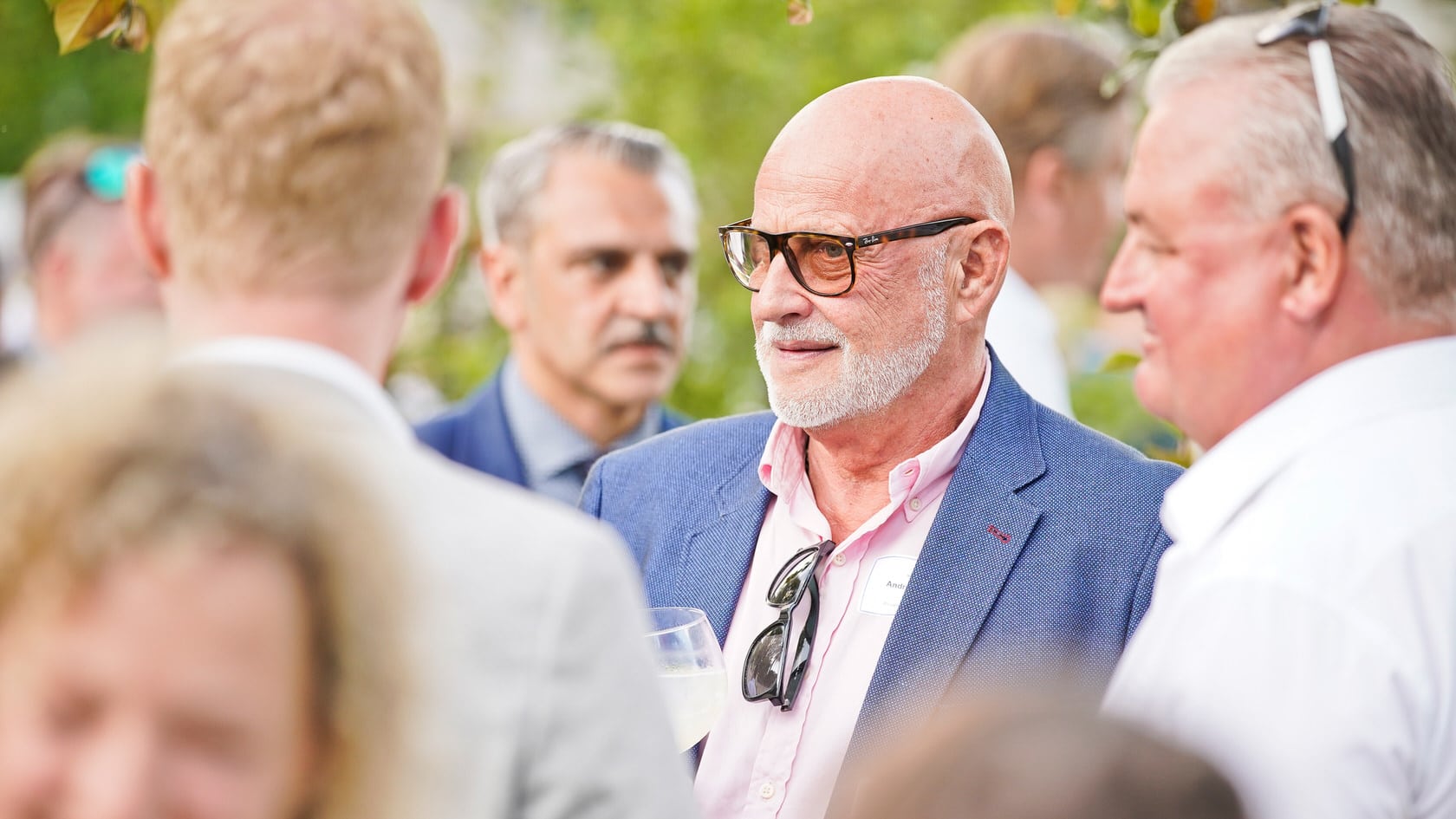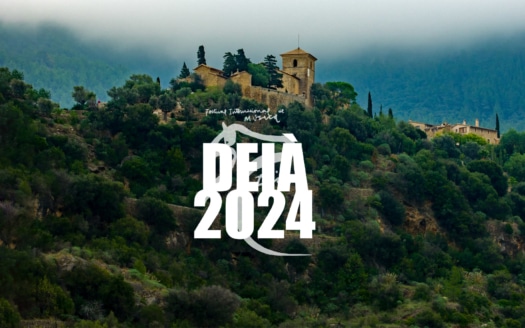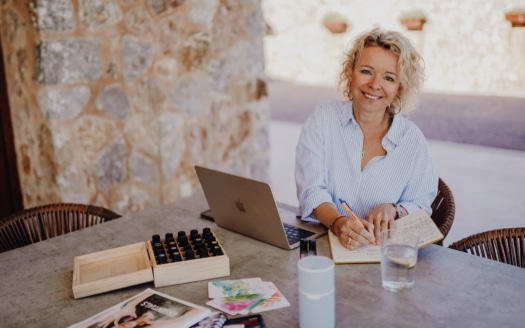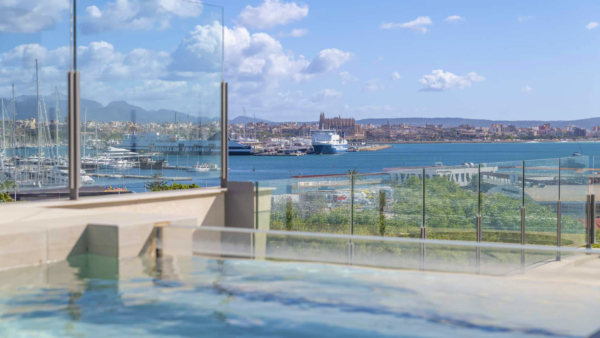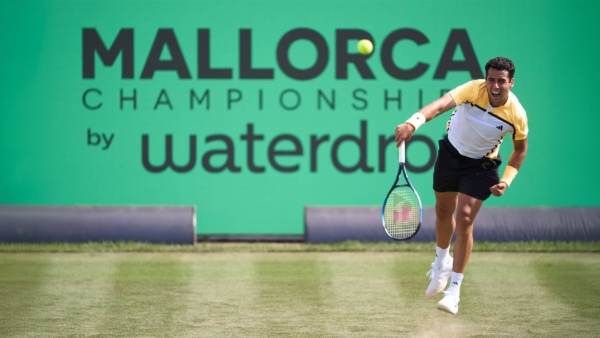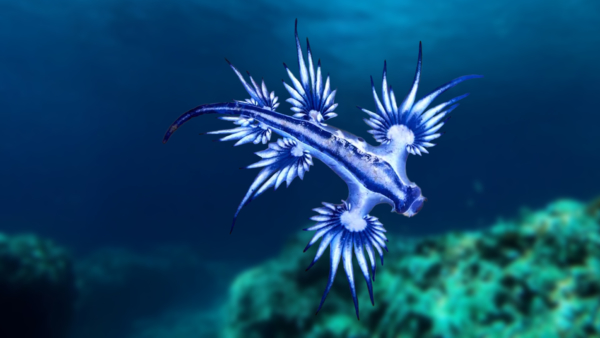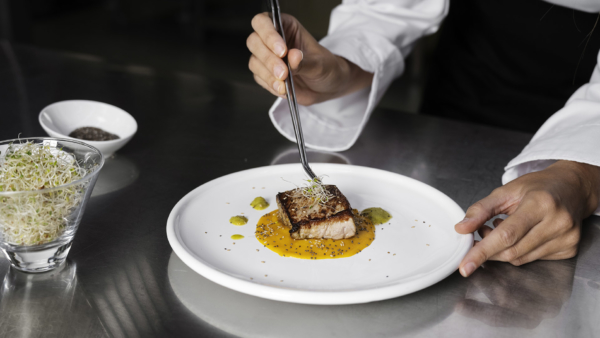
Three days of discussion, listening, getting new impulses, exchanging ideas - and then putting what they have learned into practice. At Castell Son Claret, from Thursday, 9 June, to Saturday, 11 June, around 150 people took part in the business forum “Neu Denken” in a unique Mediterranean ambience. The host at the venue, not far from Es Capdellà near Calvià, was the Hamburg-based shipping entrepreneur, billionaire and patron of the arts Klaus-Michael Kühne.
Three organisers brought this unique forum to life for the fifth time - in addition to the island-based tax and legal office PlattesGroup, the law firm “Flick Gocke Schaumburg” and the accountants “LeitnerLeitner”. However, the idea for this came years ago from Willi Plattes, CEO of PlattesGroup, together with the TV presenter Sabine Christiansen. The latter was also responsible for chairing the congress during the three days. Up to date on every topic and on eye level with all of the 46 speakers, she provided entertaining and at the same time informative moments. In line with the motto from “new thinking” to “new action”, she said: “You notice from conference to conference how the proposals become more concrete.” And the special event need not fear comparison with larger events of this kind. “We will not explode this like Davos, but keep it in an exclusive and small setting in the future,” said Willi Plattes.
The networking get-together, including a barbecue in the garden of the five-star hotel, was dominated this year by the global crises. The Balearic Finance Minister Rosario Sánchez Grau kicked off the event: “European solidarity and unity is the necessary basis for jointly overcoming the current challenges posed by the Corona pandemic, the Ukraine war and climate change.” And these three global crises mentioned by Sánchez ran like a red thread through all the speeches and presentations on the two days of the conference.
On Friday morning, the President of the German Institute for Economic Research, Professor Marcel Fratzscher, gave an outlook on economic development in Germany and Europe. Here, he emphasised, it is above all Russia and China that are leading to a tendency towards deglobalisation. The three “P’s” currently challenging society - populism, protectionism and paralysis - had been further exacerbated by the pandemic. This was followed by the presentation of Christian Dürr, Chair of the FDP parliamentary group in the Bundestag, on the topic of “Changing times for Germany - where is the liberal in the traffic light? His appeal was: “Let us be doers and not worriers”.
One of the highlights of the Forum were the lectures on “Zeitenwende in Europa/Die aktuelle Lage durch den Krieg in der Ukraine”. Here, in addition to Alexander Graf Lambsdorff, the deputy chair of the FDP parliamentary group, ex-oligarch Mikhail Khodorkovsky was also involved, who was digitally connected from London. The Kremlin critic observes that many Western politicians live in a paradigm of the rule of law and are afraid of Putin. The latter, however, plays by his own rules and would simply overturn the game board. Lambsdorff told MM: “We must not forget that there is death and suffering in the east of our continent right now, and we must do everything to make it stop as soon as possible.”
Nina Khrushcheva, the great-granddaughter of Soviet politician Nikita Khrushchev, also spoke about the new geopolitical reality and its impact on Europe and the world. In view of the new global situation, she expressed her concern: “The fact that diplomats have been expelled from Russia, just as Russian diplomats have been expelled from the United Nations in return, is not exactly conducive. Because right now we need more negotiations than ever. Business people should also talk to Putin, no matter how bad relations are.” The chairman of the German Unicef Committee, Georg Graf Waldersee, and the former ambassador in Moscow, Rüdiger Freiherr von Fritsch, also commented on Russia. The latter summed up the new global role of the Russian head of state in a few words: “We are dealing with the development of an authoritarian leader who is ill-advised and thinks in the categories of a Soviet KGB officer. Because of the Corona pandemic, he is following even more closely his Great Russian imperialist reflexes, and is acting out of a distorted perception of the world situation.”
On Friday afternoon, the topics “Cyberattacks” and “Digital Transformation” were on the agenda of the conference. Christian Klein, CEO of SAP, and Philipp Justus, Vice President of Google in Central Europe, analysed whether and how Germany can catch up with China, South Korea and the USA in the digital economy. Another speaker, Prof. Dr. Helmut Schöneberger, Vice President of the Technical University of Munich, whose university has become a start-up hotbed, demonstrated that Germany’s entrepreneurs need not hide.
Germany as a start-up country was also the focus of the speeches by entrepreneur and founder Dr. Conny Boersch and Deepa Gautam-Nigge, Senior Director at SAP. Gautam-Nigge was optimistic in some respects: “Above all, the bridge between science and business must be strengthened in Germany.” He said that the example of Biontech showed how this is possible. “But working between start-ups and companies also needs to improve.”
Daniel Metzler, young rocket entrepreneur from Isar Aerospace, and the former space traveller and ESA coordinator, Dr Thomas Reiter, made the participants understand the opportunities in “space as a market worth billions” in a simple way. Reiter, who spent a total of 350 days, four hours and 55 minutes in space, told MM: “We have to go to Mars because we want to understand whether life is unique here on the planet or whether it originated elsewhere. Mars had a dense atmosphere, water and temperatures that may have allowed life to emerge.”
On the second day of the conference, Saturday, one high-profile lecture followed another. At the beginning, Christian Lindner, the Minister of Finance, who had joined the conference from Berlin, spoke about the new “global state of emergency”. He said it was all the more important to demonstrate the ability to act in these times, when Germany’s neighbours were noticing the military deficits of the Bundeswehr. This is now possible by rearming the Bundeswehr with the so-called “special assets” of 100 billion euros. SPD party leader Lars Klingbeil was on the line from Lüneburg Heath. He stressed that the coalition had many crises to overcome and that the time for talking about trivial issues was over.
The CEO of Nestlé, Marc-Aurel Boersch, gave new impulses for thought in a conversation with the Rewe CEO, Lionel Souque, who was digitally connected. His proposal to get a grip on the global greenhouse crisis is to switch to a vegan diet. Above all, animal husbandry is responsible for a large part of the high global CO2 emissions.
This was followed by a discussion between former Defence Minister Rudolf Scharping and the former head of the Munich Security Conference, Wolfgang Ischinger, about Europe’s dependence on China. Scharping said, “China is not a threat, nor are we dependent on China. Rather, we need each other to solve global problems, from climate change to peace.” Towards the end of the event, Patrick Adenauer, President of the Family Business Network, stressed the need to further digitalisation in Germany and to fight inflation.
Sarna Röser, Chairwoman of Germany’s Young Entrepreneurs, who is also a guest lioness on the TV show “Höhle der Löwin” (Lion’s Den), also spoke out in favour of change in Germany as a business location: “I call on all young people: If you have an idea, dare to take a risk! We put too many obstacles in the way of young people, have a bureaucracy monster, no digital administration and the highest taxes.” Speaking to MM, Julia Klöckner, economic policy spokesperson for the CDU/CSU parliamentary group, had no shortage of words of praise for the event: “This business forum is a great initiative because people can talk to each other very openly here and it leads to encounters between politics and business.” Organiser Willi Plattes has great visions for the future: The goal, he says, is to build up another, technological branch of the economy on the island. “We have already founded two start-ups. Mallorca can become a ‘Silicon Island’ and showcase in Europe.”
Many thanks to Mallorca Magazine for the article! An informative Mallorca resource - online and offline!

